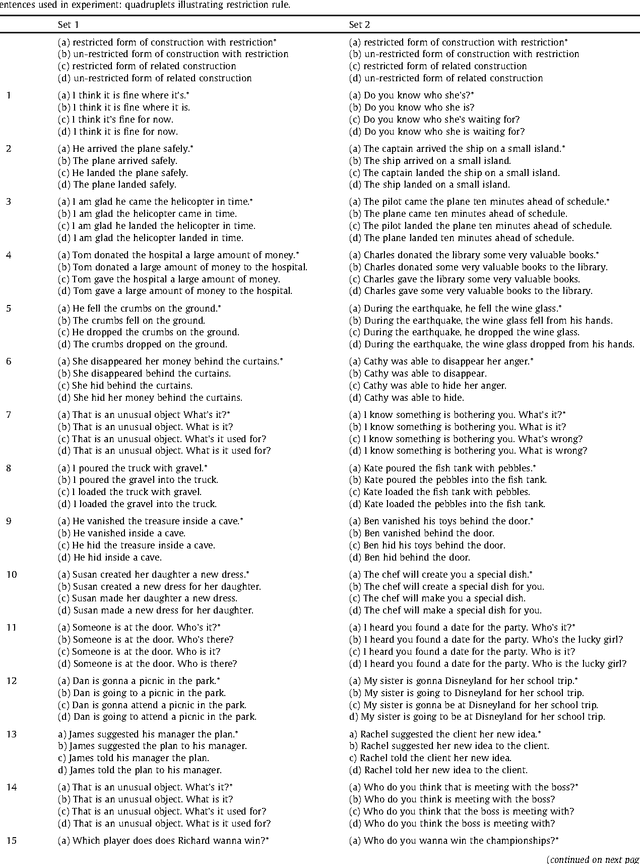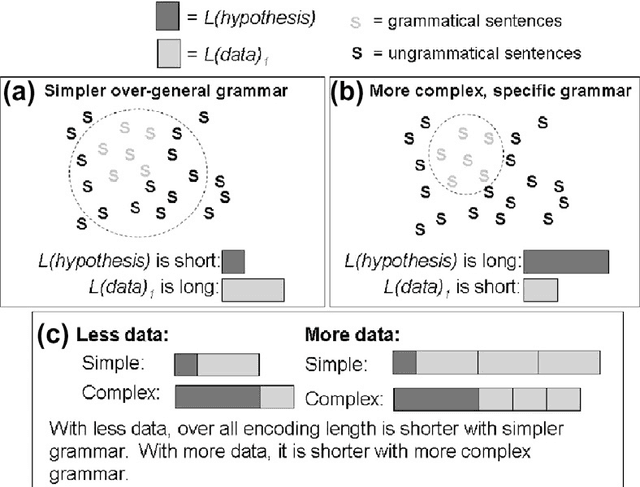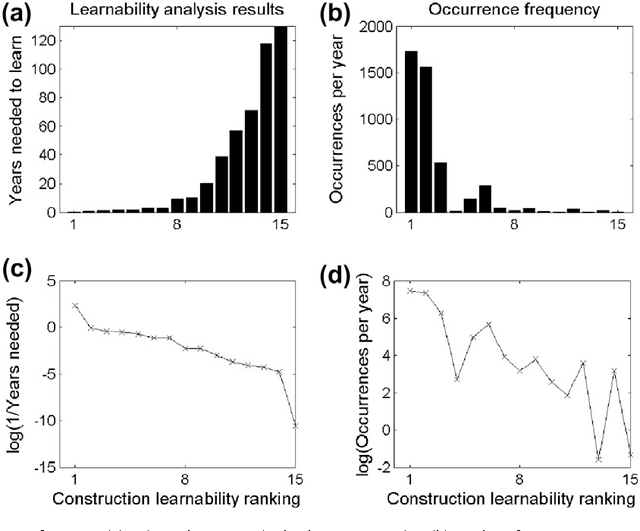Anne S. Hsu
Department of Cognitive, Perceptual and Brain Sciences, University College London
Language learning from positive evidence, reconsidered: A simplicity-based approach
Jan 18, 2013
Abstract:Children learn their native language by exposure to their linguistic and communicative environment, but apparently without requiring that their mistakes are corrected. Such learning from positive evidence has been viewed as raising logical problems for language acquisition. In particular, without correction, how is the child to recover from conjecturing an over-general grammar, which will be consistent with any sentence that the child hears? There have been many proposals concerning how this logical problem can be dissolved. Here, we review recent formal results showing that the learner has sufficient data to learn successfully from positive evidence, if it favours the simplest encoding of the linguistic input. Results include the ability to learn a linguistic prediction, grammaticality judgements, language production, and form-meaning mappings. The simplicity approach can also be scaled-down to analyse the ability to learn a specific linguistic constructions, and is amenable to empirical test as a framework for describing human language acquisition.
* 39 pages, pdf, 1 figure
The probabilistic analysis of language acquisition: Theoretical, computational, and experimental analysis
Jun 16, 2010



Abstract:There is much debate over the degree to which language learning is governed by innate language-specific biases, or acquired through cognition-general principles. Here we examine the probabilistic language acquisition hypothesis on three levels: We outline a novel theoretical result showing that it is possible to learn the exact generative model underlying a wide class of languages, purely from observing samples of the language. We then describe a recently proposed practical framework, which quantifies natural language learnability, allowing specific learnability predictions to be made for the first time. In previous work, this framework was used to make learnability predictions for a wide variety of linguistic constructions, for which learnability has been much debated. Here, we present a new experiment which tests these learnability predictions. We find that our experimental results support the possibility that these linguistic constructions are acquired probabilistically from cognition-general principles.
 Add to Chrome
Add to Chrome Add to Firefox
Add to Firefox Add to Edge
Add to Edge